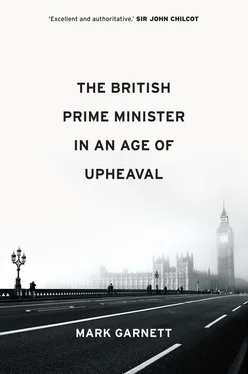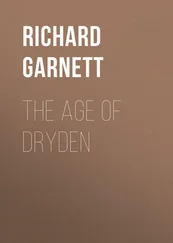If the parliamentary perspective really mattered, the choice of Duncan Smith looks even more maladroit than Michael Foot’s elevation to the Labour leadership in 1980. Presenting Foot as a potential Prime Minister was widely seen as a hopeless instance of miscasting, not least (and significantly) because he had been badly injured in a car accident in 1963 and thus looked older than his years in television appearances. However, Foot was a Rolls-Royce compared to Duncan Smith’s Reliant Robin in terms of parliamentary skills. Although the House of Commons is irredeemably partisan, the acid test for a good leader in that environment must still be the hypothetical case in which the final outcome of key votes depends on the eloquence of rival speakers. More realistically, a party leader with a gift for oratory is better equipped to enthuse the party faithful than someone whose speeches, in terms of delivery and content, would only appeal to those whose minds are closed to any alternative position. Although he was seen as a disastrous leader, Foot always received (and deserved) a respectful hearing in the House; Duncan Smith was not even very good at preaching to the converted (as he demonstrated at his party’s conferences). A less sentimental party than Labour would have dispensed with Foot’s services before the 1983 general election; a less ideological party than the Conservatives would not have allowed Duncan Smith anywhere near the leadership in the first place.
Labour took more than a decade to emulate the Tories in this respect. But in 2010 it showed distinct symptoms of plumping for leadership candidates who pleased the party as a whole regardless of their parliamentary prowess, when the preference of MPs for David, rather than Ed, Miliband was over-ridden by other elements of the party. In terms of parliamentary stature, David was the better qualified Miliband; but he had enjoyed more opportunities than Ed to shine in set-piece debates, so this could be rationalized as an occasion when the extra-parliamentary party decided to go for potential rather than proven ability.
However, no such excuse was available to the Labour Party when in 2015 it anointed Jeremy Corbyn as Ed Miliband’s successor. In terms of nominations by the Parliamentary Labour Party, Corbyn came fourth of the four candidates who progressed to the final round of voting. Corbyn resembled Duncan Smith in having built his reputation on principled disloyalty; although Corbyn cast far more votes against his party than Duncan Smith, the latter compensated for his infrequent disobedience by voting against the official Conservative line on the issue (Europe) which was calculated to cause maximum damage. More importantly in the present context, in both instances the voting records of Corbyn and Duncan Smith spoke more eloquently to the extra-parliamentary selectorate than any words that either had ever uttered in Parliament. Unlike leftist predecessors who had either won or aspired to the Labour leadership (e.g. Foot and Tony Benn), Corbyn was not regarded as a good parliamentary orator except by those who shared his views. As in the case of Duncan Smith, the votes of ordinary party members in 2015 saddled a potential party of government with a leader who palpably lacked the confidence even of his own cohort of MPs.
The decision of Conservative MPs to select Boris Johnson as one of the two candidates to proceed to the final round of voting in 2019 falls into a different category. Any parliamentary reputation (deserved or not) enjoyed by Corbyn or Duncan Smith prior to their election as leaders arose from their dogged perseverance in the face of hostility from loyal MPs within their own parties. They might never have come close to commanding a majority in the House of Commons in their rebellious days, but at least they had never shown signs of treating the Chamber as a means to a personal end. In his first parliamentary stint as MP for Henley (2001–8) before he decided to put himself forward for London’s elected Mayoralty, Johnson’s speeches made no favourable impression. This remained the case between his return to the Commons in 2015 and his promotion to Foreign Secretary after the Brexit referendum in 2016. Johnson’s attempt to identify (and, by implication, to compare) himself with Winston Churchill was self-evidently improbable. However, by 2019 a considerable number of grassroots Tories had convinced themselves that membership of the European Union presented an existential threat to the UK. Cometh the hour, cometh the Churchill impersonator. Tory MPs were acutely aware of the enthusiasm for ‘Boris’ among their constituency members, and feared the grassroots reaction if they kept Johnson out of the final ballot. As a result, in the general election of 2019 the two main British political parties were led by individuals who would not have been serious contenders for their positions if parliamentary considerations had been an important (let alone crucial) factor.
It is possible to regard the broadening of the choice of party leaders to grassroots members as an inevitable development for a variety of reasons. But whatever the precise triggers for the procedural changes in both of the main UK parties, the effects were likely to strengthen the position of incumbent leaders. The ultimate arbiters of their fate would no longer be the parliamentary colleagues who could evaluate their qualities at first hand; rather, it would be people who were unlikely to have met them in the flesh. The Conservative Party’s rules, as modified in 1997, were designed to evade the real nightmare scenario, in which a leader who has been defeated in a vote of confidence among his or her MPs is reinstated by the votes of the extra-parliamentary party. No doubt recalling the situation in 1975, when, given the chance of a party-wide ballot, a majority of constituency members would have supported Heath rather than Thatcher, the Conservatives stipulated that a leader who had been beaten in a vote of confidence among MPs would be excluded from the ensuing contest. However, the 2019 Conservative leadership election suggested that this precaution was either unnecessary or futile. A leader who was deemed incapable by the parliamentary party, but still commanded the affection of grassroots members, would be most unlikely to face a confidence vote in the first place, let alone lose it. Conservative MPs were only able to get rid of Duncan Smith because grassroots members had woken up to their mistake after two years of maladroit leadership. The indefatigable but ineffective attempts of Labour MPs to dethrone Jeremy Corbyn confirmed this impression; unlike Duncan Smith, who never had the chance to test his popularity in a general election, Corbyn was rendered invulnerable to defenestration by the result of the 2017 general election, and given a licence to exhaust the faith of his supporters in the ensuing 2019 contest.
In 1975, when Heath was toppled by Thatcher, the resentment of ordinary party members against ‘disloyal’ MPs was informed by a mixture of attitudes which now seem quaint and outdated. With hindsight, the mid-1970s can be seen as the end of a brief post-war interlude in which elitists and meritocrats (especially, but not exclusively, those who supported the Conservative Party) could feel that deference was automatically due to the leader whose appointment had been based on the free choice of MPs. This feeling allowed the Conservatives, when permitting the existing leader to be challenged, to place a very low threshold on the necessary level of initial backing; only two MPs (who could remain anonymous) were needed to nominate a challenger. It was assumed that an involuntary change at the top would only take place if there was overwhelming evidence that this was unavoidable, so that even if grassroots members continued to support the supplanted leader they would gradually reconcile themselves to the new regime (as happened in Thatcher’s case).
Читать дальше












